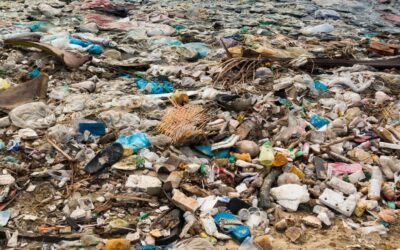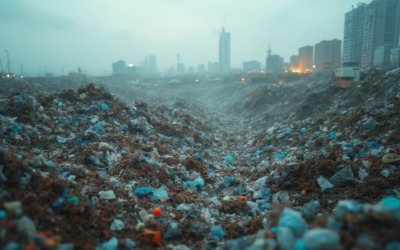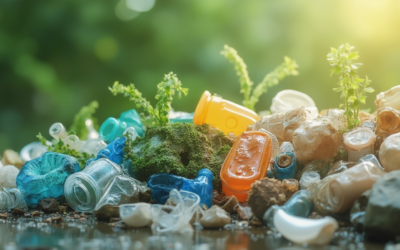9 Powerful Solutions to Combat Plastic Waste: Bhumi’s Innovative Approach
Plastic waste is one of the most pressing environmental challenges of our time. With millions of tons of plastic ending up in our oceans and landfills every year, it’s time to take action. This post explores Bhumi’s innovative solutions to plastic waste and how you can be part of the change.
Table of Contents
The Scale of the Problem
Plastics are ubiquitous in our daily lives, from packaging and clothing to electronics and medical devices. However, only a small fraction of plastic waste is recycled, with the majority ending up in landfills or polluting our oceans. This has dire consequences for wildlife, ecosystems, and human health.
- According to a study published in Science Advances, as of 2017, approximately 8.3 billion metric tons of plastic have been produced, with 6.3 billion tons becoming plastic waste. Of that, only 9% has been recycled, 12% incinerated, and 79% accumulated in landfills or the natural environment.
- It is estimated that by 2050, there will be more plastic than fish in the ocean by weight if current production and waste management trends continue.

Environmental and Health Impacts
- Marine Pollution: Plastics in the ocean harm marine life, with animals ingesting or becoming entangled in plastic debris. This not only leads to injury and death but also affects the broader ecosystem. The World Wildlife Fund reports that nearly 700 species, including endangered ones, are known to be affected by plastics.
- Microplastics: Tiny plastic particles infiltrate the food chain, posing health risks to humans and wildlife. A study by Orb Media found microplastics in 93% of bottled water samples tested globally (CBC). These particles can carry harmful pollutants and chemicals, leading to potential health risks when ingested.
- Chemical Leaching: Plastics release harmful chemicals like BPA and phthalates, which are linked to health issues such as hormonal disruptions and cancer. The National Institute of Environmental Health Sciences provides detailed information on the health risks associated with BPA.
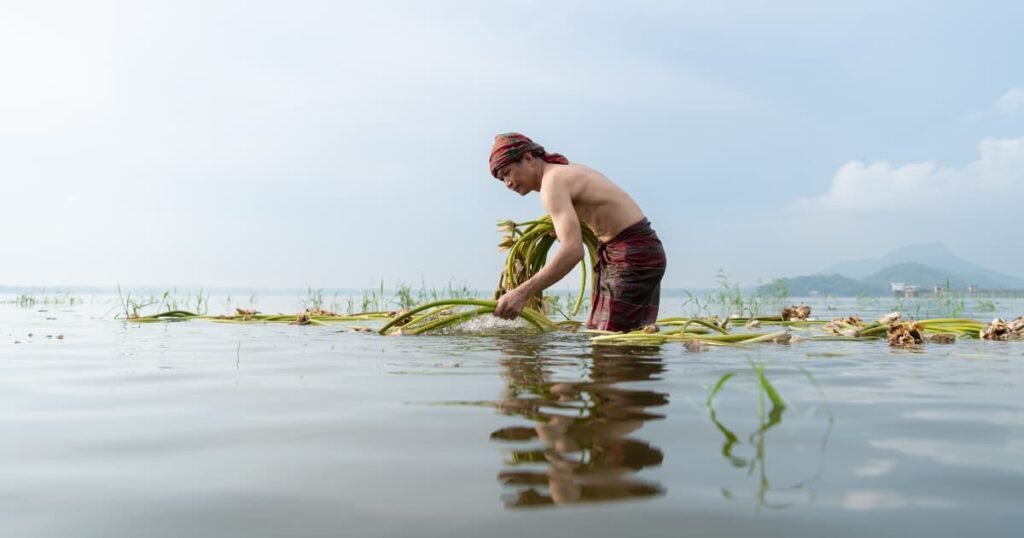
Bhumi’s Approach
Supporting Seaweed Farmers to Combat Plastic Waste
Bhumi is at the forefront of the battle against plastic waste, implementing innovative solutions to reduce, reuse, and recycle plastics. One of our most impactful initiatives involves supporting seaweed farmers to create eco-friendly plastic alternatives.
- Supporting Seaweed Farmers: Bhumi funds seaweed farmers, providing them with the necessary resources and training to cultivate seaweed sustainably. Seaweed farming helps absorb CO2 and other pollutants, improving air quality and enhancing marine biodiversity. According to the International Union for Conservation of Nature (IUCN), seaweed can capture carbon up to 20 times more efficiently than land-based forests, making it a powerful tool in combating climate change and improving air quality.
- Creating Plastic Alternatives: The harvested seaweed is processed into biodegradable packaging and other plastic alternatives. This innovative approach reduces the reliance on single-use plastics, which are a significant source of pollution when incinerated or improperly disposed of. Seaweed-based products decompose naturally, reducing air and land pollution. Research by the Ellen MacArthur Foundation highlights the potential of biodegradable alternatives in achieving a circular economy.
- Educational Campaigns: Bhumi raises awareness about the benefits of seaweed farming and the importance of reducing plastic waste. Bhumi conducts workshops and seminars to educate communities on sustainable practices and the environmental impact of traditional plastics. These educational initiatives help foster a culture of sustainability and informed consumer choices.
- Community Engagement: Collaborating with local communities, Bhumi develops and implements programs that encourage the use of seaweed-based products. We work with local governments and organizations to create community-driven solutions to plastic pollution and promote the adoption of eco-friendly alternatives. Community engagement is crucial for the success of environmental initiatives, as highlighted by a study published in the Journal of Environmental Management (PDF).
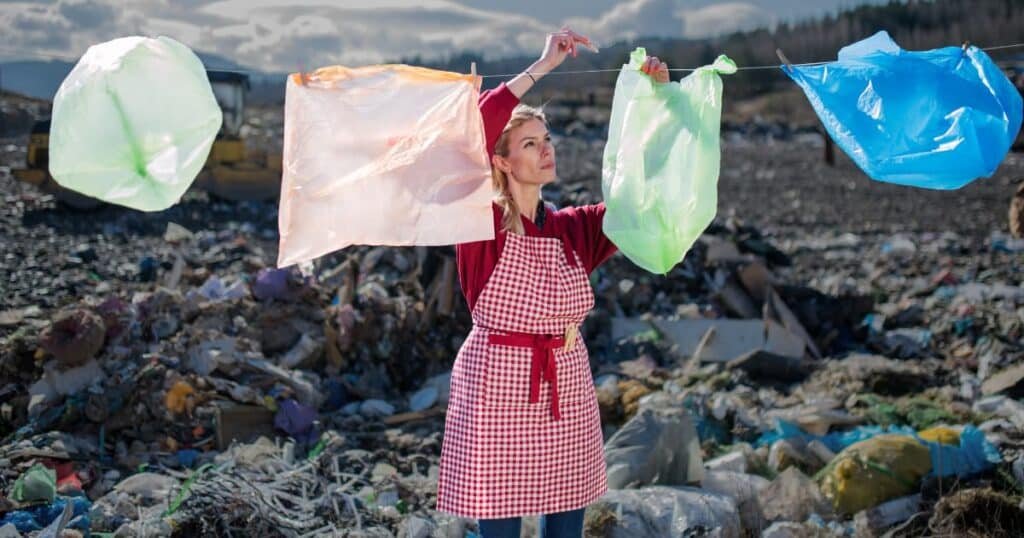
How You Can Help
Everyone has a role to play in combating plastic waste. Here are some ways you can contribute:
- Reduce Plastic Use: Opt for reusable products instead of single-use plastics. Bring your own bags, bottles, and containers. The Environmental Protection Agency (EPA) provides tips on reducing and reusing. Simple changes in daily habits can significantly reduce plastic waste.
- Support Legislation: Advocate for policies that ban or limit single-use plastics and promote recycling. The Plastic Pollution Coalition offers resources on how to get involved in advocacy. Supporting legislation that encourages sustainable practices can lead to significant environmental benefits.
- Get Involved: Join clean-up events and educational workshops to make a difference in your community. Participating in local clean-up efforts can significantly reduce the amount of plastic waste entering our waterways and oceans. The Ocean Conservancy provides information on global clean-up initiatives.
Conclusion
Plastic waste is a global issue that requires collective action. Bhumi’s innovative solutions are making a significant impact, but we need your help to turn the tide. Together, we can create a cleaner, healthier planet.
Support Bhumi’s efforts to combat plastic waste. Visit our website to learn more about our initiatives and find out how you can get involved.

